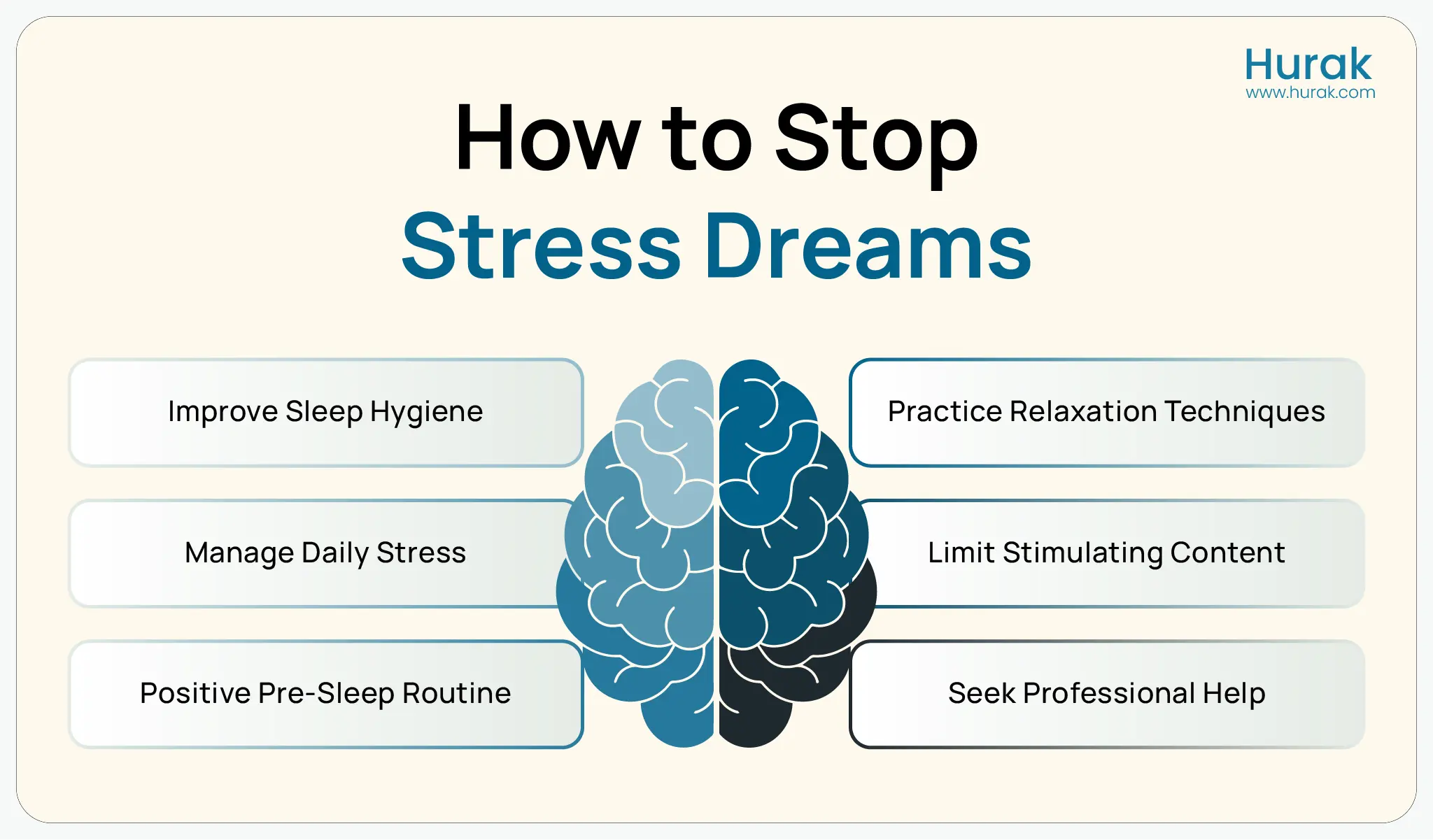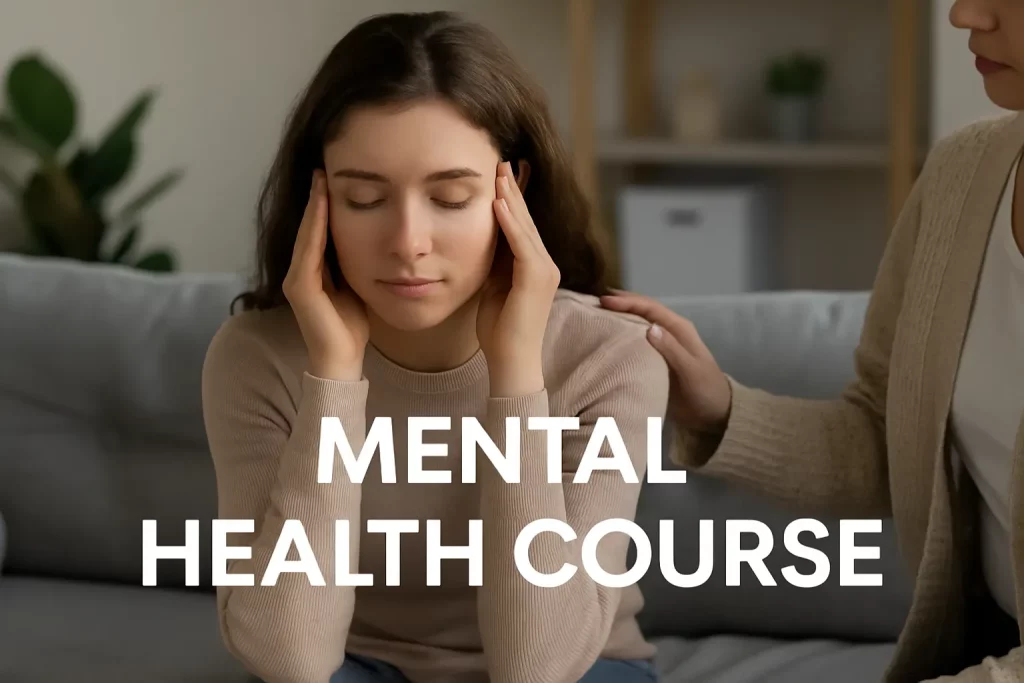Have you ever woken up from a dream that felt more exhausting than restful? Stress dreams are vivid, unsettling experiences often tied to anxiety or emotional pressure. Unlike typical nightmares, they reflect your waking stress and can leave you feeling drained.
In this article, we’ll explore what causes stress dreams, the different types you might experience, and practical ways to prevent them for better sleep and peace of mind.

What Are Stress Dreams?
Stress dreams are vivid, emotionally charged dreams that often occur during periods of psychological strain, anxiety, or emotional fatigue. Unlike regular dreams, which may be random or influenced by daily experiences, stress dreams are usually shaped by unresolved worries or high-pressure situations in waking life. These dreams are the mind’s way of processing stress while you sleep, often replaying or distorting real-life concerns in surreal or symbolic ways.
Common scenarios in stress dreams include being late for an exam, losing something important, forgetting responsibilities, or being chased. While these dreams may not always be terrifying enough to be classified as nightmares, they can still leave you feeling unsettled or emotionally drained upon waking.
Stress dreams most frequently occur during the REM (Rapid Eye Movement) phase of sleep, which is closely tied to emotional memory and brain activity. During this phase, your brain processes thoughts and emotions, which is why stress and anxiety often translate into unsettling dream content.
If you’re dealing with ongoing stress, whether related to work, relationships, or personal challenges, your subconscious may bring that tension into your sleep through vivid dreams. Recognising that these dreams are linked to stress is the first step toward managing them and improving your sleep quality.
Stress Dreams vs. Nightmares
Stress dreams and nightmares are often confused because both can leave you feeling anxious, unsettled, or exhausted upon waking. However, they are not quite the same, and understanding the difference can help you better manage your sleep and emotional well-being.
Stress dreams typically reflect ongoing worries or pressures from your daily life. They often involve realistic scenarios, like being late for an important event, losing something valuable, or feeling unprepared for a task.
Although these dreams can be distressing, they don’t usually contain intense fear or terror. Instead, stress dreams feel tense, frustrating, or overwhelming, mirroring the stress you experience when awake. People often remember them vividly because they directly connect to real-life concerns.
Nightmares, on the other hand, are more intense and emotionally charged. They usually involve fear, panic, or a sense of imminent danger. Common themes include being attacked, trapped, or threatened.
Nightmares can trigger a physical response, such as sweating, a racing heart, or waking up suddenly. They are often linked to trauma, anxiety disorders, or certain medications, but they can also happen spontaneously.
| Aspect | Stress Dreams | Nightmares |
| Emotional Intensity | Moderate anxiety, tension, or frustration | Intense fear, panic, or terror |
| Content | Realistic scenarios related to daily stress (e.g., being late, unprepared) | Often surreal, threatening, or life-threatening situations (e.g., being chased, attacked) |
| Physical Reactions | Mild discomfort or restlessness | Strong physical responses such as sweating, rapid heartbeat, and sudden awakening |
| Common Themes | Missing deadlines, losing important items, and feeling overwhelmed | Falling, being attacked, trapped, or dying |
| Frequency | More common during periods of high stress | Can occur randomly or be linked to trauma or anxiety disorders |
Want to be more aware of mental health issues, including stress dreams?
Explore Hurak’s Mental Health First Aid Courses to gain valuable insights into mental health challenges and how to support yourself and others.
Our Mental Health First Aid Course covers the fundamentals of mental health, helping you build confidence in recognising and responding to common issues
What Causes Stress Dreams?
Stress dreams aren’t random; they’re often your brain’s way of working through unresolved tension, emotional overload, or daily worries while you sleep. They typically occur during REM (Rapid Eye Movement) sleep, the stage when your brain is most active and emotionally responsive.
Here are the most common causes:
- Chronic Stress: Ongoing stress from work deadlines, exams, financial pressures, or relationship conflicts can spill over into your sleep. When your brain doesn’t get a chance to process these emotions while you’re awake, it often does so at night, creating dreams that replay or exaggerate your anxieties.
- Poor Sleep Hygiene: Irregular sleep schedules, late nights, excessive screen time before bed, and the consumption of caffeine or alcohol can all disrupt your sleep quality. These habits can make your dreams more vivid and emotionally charged.
- Emotional Overload and Suppressed Feelings: Trauma, unresolved conflicts, or emotions you’re trying to avoid can resurface as stress dreams. Your subconscious uses these dreams to confront feelings you might be suppressing during the day.
- Significant Life Changes: Major transitions, such as moving, starting a new job, experiencing a breakup, or facing uncertainty, create emotional upheaval that often manifests in dreams.
- Mental Health Challenges: Conditions such as anxiety disorders, depression, and burnout are strongly linked to frequent stress dreams and nightmares. When your mental health is under strain, your dream life often becomes more intense.
- High Cognitive Load: Multitasking, constant decision-making, or trying to juggle too many responsibilities can overload your mind. During sleep, your brain works overtime to process this excess information, which can trigger stressful dream scenarios.
- Physical Health Factors and Medications: Some medical conditions or medications disrupt the natural sleep cycle, especially REM sleep, making emotionally intense dreams more likely.
- REM (Rapid Eye Movement) Sleep Processing: During REM sleep, your brain sorts memories and emotions. If you have unresolved stress or heightened anxiety, this process can translate into vivid, unsettling dreams that feel very real.
Types of Stress Dreams
Have you ever woken up from a dream that felt way too real, and way too stressful? You’re not alone. Most stress dreams fall into a few familiar categories, and once you recognise them, you’ll start to see how they connect to what’s happening in your life.
Here are some of the most common types:
- Running Late or Missing Something. Dreaming about missing a train, an exam, or an important appointment is a classic sign you’re feeling pressure to keep up.
- Losing Your Stuff Ever dreamed you lost your wallet, phone, or even your car? This often points to worries about losing control or security.
- Being Chased: Whether you’re running from someone or something you can’t see, this dream reflects feeling overwhelmed or threatened by stress you can’t quite pin down.
- Falling: That sudden drop in your stomach? It usually means you’re anxious about failing or losing your footing in some part of your life.
- Your Teeth Falling Out: Strange but common, this dream can show up when you feel insecure or worried about how others see you.
- Being Stuck or Unable to Move: You try to call out or run, but your body won’t cooperate. This often mirrors feeling powerless or unheard.
- Public Embarrassment: Forgetting your lines, showing up unprepared, or standing in front of a crowd can highlight social fears or self-doubt.
- Reliving Old Work or School Stress: Even if you graduated years ago, dreams about exams or old bosses can pop up when current stress reminds you of those past pressures.
How to Stop Stress Dreams
While stress dreams can feel overwhelming, there are effective ways to reduce their frequency and make them less intense. These strategies focus on managing stress during the day, improving sleep quality, and creating a healthier mindset before bedtime.
Improve Your Sleep Hygiene
- Keep a consistent sleep schedule, even on weekends.
- Avoid screens, caffeine, and alcohol for at least an hour before bed.
- Make your bedroom a calm, dark, and comfortable environment.
Practice Relaxation Techniques
- Try deep breathing exercises or progressive muscle relaxation before bed.
- Use guided meditation apps or calming music to help quiet your mind.
- Journaling can help release thoughts that might otherwise surface in your dreams.
Manage Daily Stress
- Set realistic goals to avoid feeling overwhelmed.
- Take regular breaks if you’re working long hours.
- Incorporate physical activity or mindfulness practices into your day.
Limit Stimulating Content
- Avoid watching or reading stressful or emotionally intense content right before sleep.
- Consider swapping late-night news or social media for lighter activities, like reading fiction or listening to calming podcasts.
Create a Positive Pre-Sleep Routine
- Develop a wind-down ritual to signal to your brain that it’s time to rest.
- Take a warm bath, stretch gently, or spend a few minutes in gratitude reflection.
Seek Professional Support When Needed
- If stress dreams are frequent or cause significant distress, consider talking to a therapist.
- Cognitive-behavioural therapy (CBT) and stress management counselling can be beneficial.
Tired of waking up drained from stressful dreams? This quick visual summary offers simple tips to help you sleep more peacefully and wake up refreshed.

Conclusion
Stress dreams are your brain’s way of processing life’s pressures. With better sleep hygiene, stress reduction, and self-awareness, you can reduce their impact and get the restorative rest you need. And remember, help is always available if you need it.
The good news is that you don’t have to accept stressful sleep as inevitable. By understanding what triggers these dreams, practicing healthier sleep habits, and learning effective stress management techniques, you can reclaim your nights and wake up feeling more rested and in control.
FAQs
What are stress dreams, and why do they happen?
Stress dreams are vivid, often unsettling dreams triggered by anxiety, unresolved emotions, or daily stress. They happen because your brain processes emotional and psychological tension during REM sleep.
How are stress dreams different from nightmares?
While both can be disturbing, stress dreams usually involve realistic scenarios linked to everyday worries (like being late or unprepared). Nightmares are more intense and often feature fear, danger, or threats.
Can stress really cause weird or unusual dreams?
Yes. High-stress levels can lead to vivid, strange, or exaggerated dreams as your mind tries to work through difficult emotions
How can I stop having stressful dreams every night?
Improving your sleep hygiene, managing daily stress, creating a relaxing bedtime routine, and practicing techniques like meditation or journaling can reduce the frequency of stress dreams.
When should I be concerned about frequent stress dreams?
If stress dreams happen regularly, cause significant distress, or disrupt your sleep and daily functioning, it may be time to speak with a mental health professional for guidance and support.





